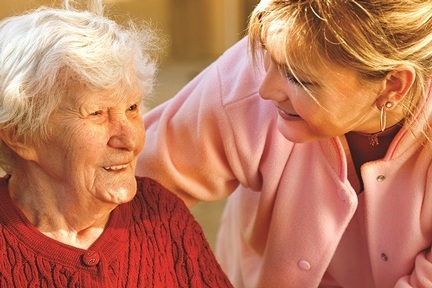Two in three Britons are unpaid carers during their lifetime
Two-thirds of people in the UK have been an unpaid carer for a relative or friend over the last two decades, according to new figures from Carers UK.

Their new report with analysis of data by Sheffield and Birmingham University, reveals two-thirds of adults in Britain can expect to care unpaid for a loved one in their lifetime and that on average, women take on caring responsibilities over a decade earlier than men.
Half of women will care by the age of 46, compared to half of men who can expect to care at 57,
Helen Walker, chief egxecutive of Carers UK, said: “Many of us don’t expect to become an unpaid carer but the reality is two in three of us will do it in our lifetimes.
“Our research shows women are disproportionately affected, facing difficult decisions about their loved ones’ health, family finances and how best to combine paid work and care more than a decade earlier than men.”
She added: “The next government has to make sure this ‘gender care gap’ is addressed by giving carers a right of five to ten days of paid care leave. It must also prioritise sustainable, long term investment in our social care system so that millions of people caring for loved ones can stay in work and look after their own health.”
The new figures show people are just as likely to care unpaid for a relative or friend as own their own house. Yet many people expect to buy a house in their lifetime but few expect they will become an unpaid carer for someone who is older, disabled or seriously ill.
A spokesman for Dementia UK said: "The majority of calls which come through to our Admiral Nurse Dementia Helpline are from female carers. However we also know that women are more likely than men to be diagnosed with dementia so there is a definite health inequality here which needs to be removed.
"In order to do this, we all need to wake up to the fact that increasing numbers of people are caring for a relative and indeed could care for a relative in the future. We also need to be saying that there should be no shame in caring; unpaid carers need to be recognised for their efforts when the ailing health and social care systems have perhaps failed them. Whilst support is already out there for carers, it can without question go a lot further."
In the wake of the research, Carers UK is calling on employers to support their employees to stay in work by adopting flexible working practices and a right of five to ten days of paid care leave.
The charity is also calling on all political parties to commit to delivering long term investment in social care so millions of people can look after loved ones without putting their lives on hold.
You can read more in the research report: Will I Care? www.carersuk.org/CarersRightsDayreport2019
If you are looking for a job in homecare you can click here
Latest News
 29-Jul-24
Dementia Bus gives carehome.co.uk staff insight into life with dementia
29-Jul-24
Dementia Bus gives carehome.co.uk staff insight into life with dementia
 27-Jul-23
UK's top home care agencies in 2023 revealed
27-Jul-23
UK's top home care agencies in 2023 revealed
 30-Nov-22
A quarter of older people keep their falls secret from family
30-Nov-22
A quarter of older people keep their falls secret from family
 29-Nov-22
'Covid-19 has not gone away' say terminally ill
29-Nov-22
'Covid-19 has not gone away' say terminally ill
 28-Nov-22
IT consultant who received poor care opens 'compassionate' home care business
28-Nov-22
IT consultant who received poor care opens 'compassionate' home care business